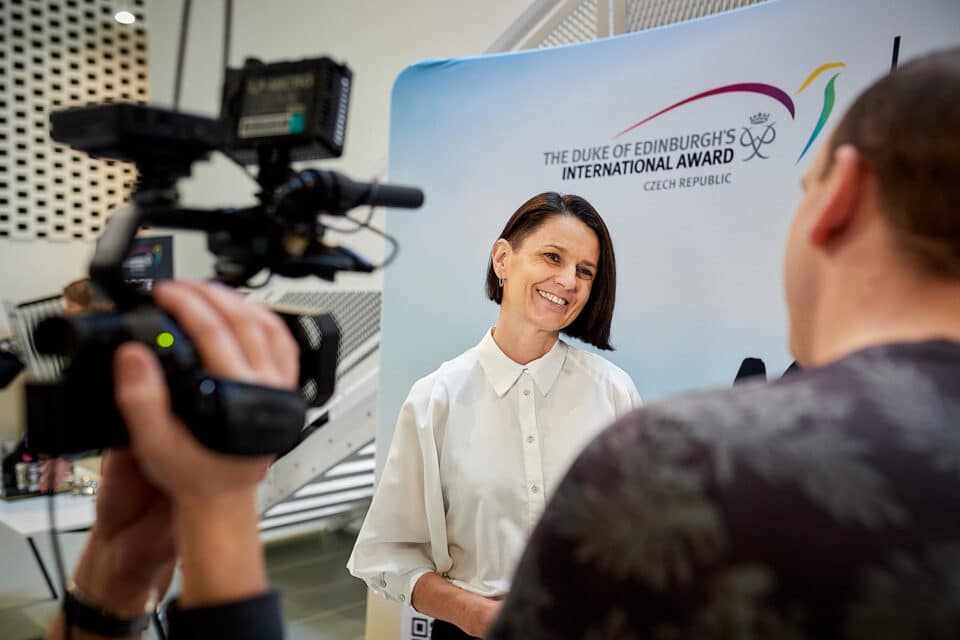We have some ideas to help participants complete the DofE from home.
The COVID-19 outbreak has affected millions of people around the world. In many places, including the Czech Republic, schools and youth organisations are completely closed to prevent the spread of the disease. In other places, such measures may be under consideration.
For Duke of Edinburgh International Award participants in these areas, this means a delay in progression through the programme as many activities usually take place in schools or other institutions that are now closed. However, there are many ways in which participants can continue their activities in the areas of skills, volunteering and moving from their homes. This will ensure their progression through the programme while maintaining a positive spirit. At this time it is vital that young people stay active and healthy, and the DofE can be a great vehicle for this.
Below you will find some tips for participants on how to continue the activities at home, provide information about them to evaluators and supervisors and move forward in their personal development.
Exchange activities in the section
While the 'ideal' situation for a young person involved in DofE is that they choose an activity and stick to it at the appropriate level within the time available, the spread of COVID-19 is a good example of how sometimes an activity needs to be changed or modified to help the programme run more smoothly.
We therefore encourage leaders to discuss with their participants the appropriateness of exchanging activities so that they continue to find the process challenging and actively pursue the DofE.
As a reminder, it is imperative that anyone contemplating activities outside the home in areas affected by COVID-19 virus first consult a physician or other responsible person.
Tips for DofE participants
Skill
Advancing your skills is something that can be easily achieved from the comfort of your own home. If you're learning a foreign language, playing a musical instrument, trying out new recipes, creating software or painting pictures, chances are you'll have all the tools you need to get started in your own home. If possible, get in touch with your assessor for advice on other activities that can be done from home. Alternatively, you can try to find tutorials on the web to help you move forward in your desired area. Once you have found suitable activities, remember to take photos or videos as a record of the activity so that you can show your assessor your progress. As you create weekly records, you can upload these photos or videos directly into the Online Record Book.
Motion
This area relates to maintaining a healthy lifestyle and improving fitness. It is very important to follow a set regime, especially if you are limited to being at home. Whatever activity you perform in the area of exercise, there are many ways to improve yourself through your own home exercises. Improving your fitness by working out at home will undoubtedly contribute to your goal. You can find various exercise programs to develop strength, coordination, reflexes, flexibility, etc. that can be done from home. Talk to your assessor or look online for a large variety of ideas and tips. It's important to demonstrate your progress to your assessor afterwards, so don't forget to add photos, videos or training plans to your weekly ORB records.
Volunteering
Remote volunteering may seem difficult to do, especially if it is a group project with friends or if your activity requires you to visit a specific location away from home. However, there are always activities that can be done from home that are volunteering. Working remotely on a project can be done, for example, by starting a group chat with all the participants and brainstorming together and contributing to the project in a variety of other ways. Online research, creating brochures to raise awareness, or posting useful things online for the community can all be activities you do to fulfill your volunteering. If you're still unsure what activities you can contribute to this area, talk to your supervisor or evaluator to come up with some creative solutions with their help.
Expedition and residential project
As both the expeditions and the residential project are group activities, they are the areas that are most difficult to fulfil during the spread of the epidemic. Many planned training and sharp expeditions have been postponed, which is essential to prevent the spread of the virus. Similarly, opportunities to organize residential projects will be limited.
However, this does not mean that all progress must be halted. If you already have an expedition team, you can keep in touch and keep an eye on everything online via emails or group chat. Exploring different areas, planning routes and some training are all activities that can be done remotely as a team.
There are many resources online with activities to practice navigation, first aid and camping skills that you can try at home. It's important to stay in touch with your team, and once your school or organization reopens, be prepared like never before!
Finally, if you're at the gold level, you can start planning in detail from home what your residential project will entail, or approach organisations you want to work with and support.


